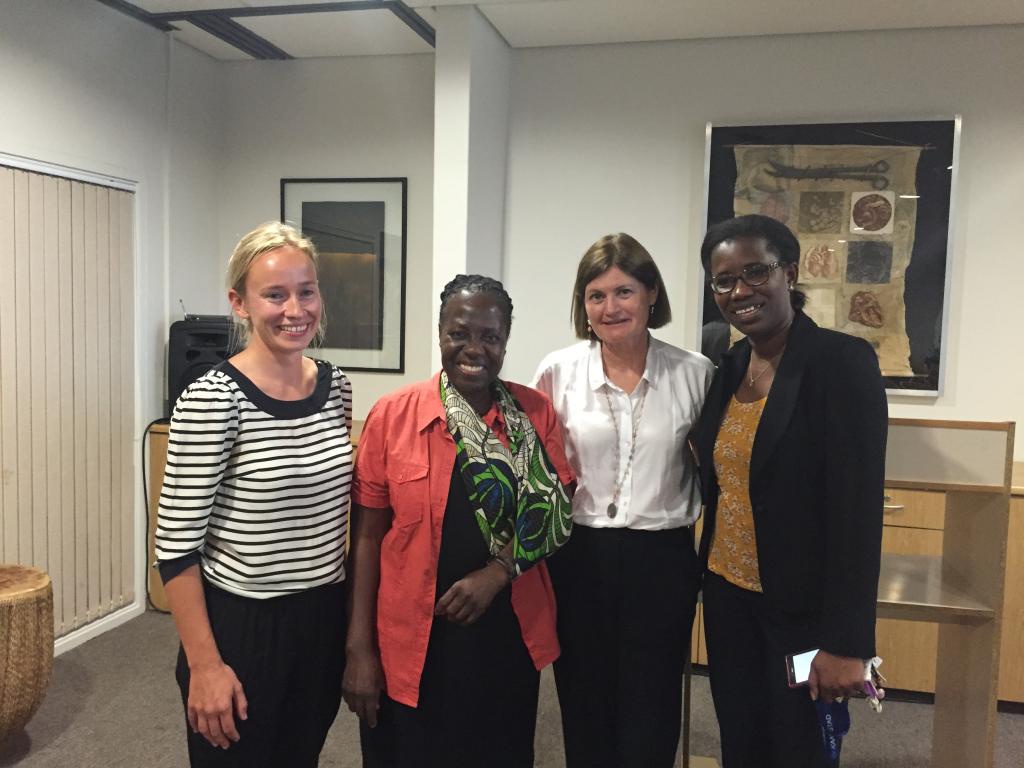New book on customary marriage launched

Describing Reform of Customary Marriage, Divorce and Succession in South Africa as ‘an empirical work that builds on a growing body of work’, including the doctoral research of Dr Sindiso Mnisi Weekes, an outstanding alumna of the UCT Law Faculty, Justice O’Regan praised the book for adding to the rich literature around the deeply complex issues of customary family law.
She said that Reform of Customary Marriage, Divorce and Succession in South Africa is an eminently readable volume, and encouraged those at the launch of the book to buy it. Justice O’Regan emphasised how important empirical work is to the project of identifying and analysing living customary law as opposed to official customary law and she complimented the authors on the depth and range of their empirical research.
Justice O’Regan also noted that the customary law of marriage, divorce and succession are undergoing tremendous change not only as a result of changing legal rules such as the Recognition of Customary Marriages Act, 1998 and important Constitutional Court judgments such as Bhe and Others v Magistrate, Khayelitsha and Others (2004), but also as a result of changing social and economic circumstances. In this regard, she told the audience that in 2013 84% of all social grants in South Africa were paid to women and 16% to men; that 40% of all Black South Africans live in traditional or tribal areas where only 11% of people are employed; that there is a sharp decline in the amount of remittances sent to rural families; and that 37.5% of households in South Africa are female-headed (the expense of lobolo being a contributing factor as the work of Professor Posel establishes). Both these sweeping social and economic changes as well the significant changes in the legal rules regulating customary law pose challenges for our understanding of customary law as it is experienced by South Africans across the country, she said.
Justice O’Regan noted that Himonga and Moore’s research establishes the continuing centrality of lobolo, bogadi or lumalo to customary marriages. One of the questions raised in the book is whether a customary marriage may be understood to have been entered into when an agreement to pay lobolo has been reached or only when the last lobolo payment has been paid (which might take many years). If the latter, she noted that it may mean that marriages are inchoate for many years until the final lobolo payment is made. She also noted that the book raised worrying questions about the approach of the Department of Home Affairs to the registration of customary marriages which were heightened by the Department’s refusal to permit the authors to conduct empirical work at DHA offices.
Justice O’Regan also pointed out that the book describes the “distressing” circumstances where customary marriages are dissolved, either by divorce or, as often happens, by desertion. She noted the absence of protections for customary law wives in these circumstances, which is aggravated in the case of both customary law and civil law marriages by the widespread failure of fathers to pay regular child maintenance.
Finally, O’Regan commented that the issues raised in the book should be considered in the light of the recent UN Women Report Progress of the World’s Women 2015/2016 which, while noting that some progress had been made in the socio-economic circumstances of women across the globe, concluded that that progress had been uneven and that women remain poorer, earn less and work longer hours, especially within the household than men. She suggested that the persistent disadvantage of women should remain an ongoing research question for scholars of customary law in South Africa.
‘In conclusion, this is a fascinating contribution to what is happening on the ground,’ said O’Regan.
PhD fellow, Fatimata Diallo commented that the discrepancy between practice and what the law outlines is the same in her home country of Senegal and is prevalent across Africa.